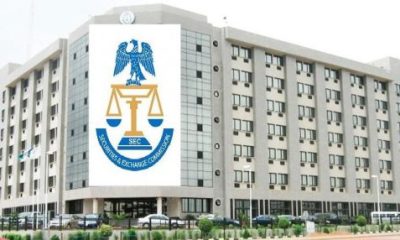National
VAT War: Lagos Lawmakers Ask Sanwo-Olu To Back Wike Against FIRS

The Lagos State House of Assembly on Monday advanced the state’s Value Added Tax, VAT bill with an injunction to Governor Babajide Sanwo-Olu to align with Governor Nyesom Wike of Rivers State in his case against the Federal Inland Revenue Service, FIRS.
The bill was advanced to the committee on finance which was asked to report back on Thursday.
Speaker of the House, Rt. Hon. (Dr) Mudashiru Obasa, said the bill on VAT, would lead to “increase in revenue and increase in infrastructural development. This is in line with fiscal federalism that we have been talking about.”
Obasa said the VAT law when passed, would help the state meet challenges in its various sectors. He also urged the Lagos State government to do everything legally possible to ensure the judgment of a Federal High Court, Port Harcourt, is sustained even up to the Supreme Court.
He lamented a situation where about 500 billion is generated from Lagos State while 300 billion is generated from other southwest states and paltry amounts are disbursed to them in return.
“It is an opportunity for us to emphasise again on the need for the consideration of true federalism,” he said.
Lagos House Advance VAT Bill, Anti-Open Grazing Bill
Meanwhile, also on the same day the Lagos House advanced the VAT Bill, the lawmakers committed the bill on open grazing to the committee on agriculture after it scaled second reading.
Speaker Obasa, described the ‘Prohibition of Open Cattle Grazing Bill’ as timely and one that would ensure harmonious relationships between herders and farmers and protect the environment of the state and the southwest zone.
The Speaker also suggested that the bill should make provision for the registration of herders and prepare them for ranching.
Speaking earlier on the bill on open grazing, Hon. Bisi Yusuff (Alimosho 1), lamented the havoc that herdsmen had caused in the southwestern zone.
According to him, farmers have continuously become afraid to visit their farms thus causing shortage of food. He also said many farmers had become indebted as they now find it difficult to pay back loans they secured.
Send Us A Press Statement Advertise With Us Contact Us
And For More Nigerian News Visit GWG.NG













